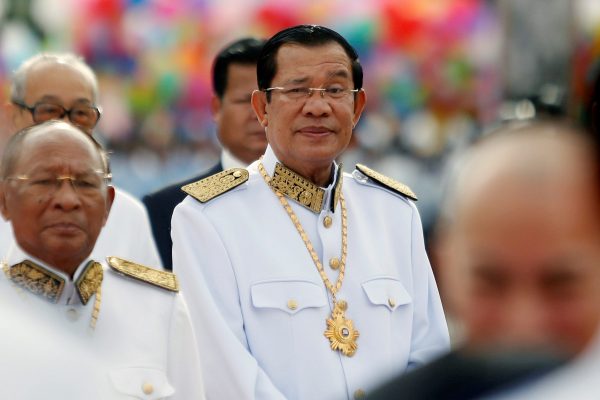The local results were seen to put the CNRP in a competitive position in the national election scheduled for July 2018.
Rather than prompting the government to become more responsive to the concerns of disaffected voters, the 2017 polls became the trigger for a brazen crackdown on the opposition, the press and civil society. The CNRP has been dissolved in a controversial court ruling, and its leader Kem Sokha has been jailed on trumped-up charges of treason. Media outlets such as the respected Cambodia Daily newspaper and independent radio stations have been shut down. The government is intimidating the largest and most vocal NGOs.
As Astrid Norén-Nilsson writes in this week’s lead article (which is part of an EAF special feature series on 2017 in review and the year ahead), the ongoing crackdown marks no less than ‘the endpoint of Cambodia’s era of electoral democracy — an era in which the opposition may have faced uphill struggles but was nonetheless dependably allowed to contest elections’.
Certainly, Hun Sen’s Cambodia was no poster child for democracy and good governance before 2017. As political scientist Lee Morgenbesser has argued, after Hun Sen’s rise to power in the 1993 election overseen by the United Nations, the country became a textbook case of ‘competitive authoritarianism’. This is a system in which parties and civil society are allowed enough freedom to maintain the appearance of competitive politics, but where political institutions are so rigged that the opposition has no real path to power. In this view, the mistake of the CNRP was to get too popular, to the extent that a national election victory seemed a possibility — a scenario that Hun Sen could not countenance.
The degeneration of a pretend democracy into outright autocracy also marks the failure of decades of investment in Cambodian democracy and good governance by Western governments and international organisations. It is perhaps a small sense of responsibility for the current predicament that gives urgency to questions about what the world can or should do in response to Hun Sen’s crackdown. At present, targeted sanctions seem ‘the only realistic possibility of a somewhat modified course of government action, though [they are] a highly uncertain one’, writes Norén-Nilsson.
The note of caution she sounds is appropriate. Cambodia is no economic pariah; rather, millions of Cambodians are beneficiaries of trade with the West. As Heidi Dahles highlights in her review of the Cambodian economy, trade unions representing garment workers have spoken out against Western economic sanctions. Western governments should take such warnings seriously. Any program of sanctions that harms Cambodian export industries would only play into the hands of Hun Sen and his narrative that the West is out to undermine Cambodia. Heavy-handed sanctions not only fail to guarantee changes in the behaviour of the target regime, but can lead to isolation and economic hardship that serves nobody’s interests (the experience of Myanmar under the old military junta is a cautionary tale).
However Western governments respond, there are ultimately larger forces at work aiding the entrenchment of authoritarianism both in Cambodia and elsewhere in the region. Hun Sen’s crackdown takes place in a world where authoritarian leaders are less dependent on the West for their aid and investment needs — and thus have fewer incentives to cultivate support among Western politicians by promising reforms and democracy. As Norén-Nilsson writes, ‘China’s full political and economic support enables Cambodia’s shift to autocracy, which occurs in the context of President Trump’s voluntary handing over of American regional and global leadership to China’.
Hun Sen and his CPP can expect to win the July 2018 election decisively in a contest compromised by the effective exclusion of the largest opposition party. By closing off avenues for peaceful opposition, Hun Sen has thrown up hazards for Cambodia’s future. As we have learned from the fall of autocrats from Indonesia to Egypt in recent decades, when struck by crises dictatorships can prove surprisingly brittle — and efforts to unseat them typically lead to large-scale violence.
The West will make noises about the illegitimacy of the Prime Minister’s victory, and will likely continue to apply and even extend sanctions. But Hun Sen is here to stay, and the dictates of realpolitik mean that the Western powers will soon revert to pragmatic cooperation with Hun Sen’s regime when necessary.
The EAF Editorial Board is comprised of Peter Drysdale, Shiro Armstrong, Ben Ascione, Amy King, Liam Gammon, Jillian Mowbray-Tsutsumi and Ben Hillman, and is located in the Crawford School of Public Policy, College of Asia and the Pacific, The Australian National University.
This article is part of an EAF special feature series on 2017 in review and the year ahead.

